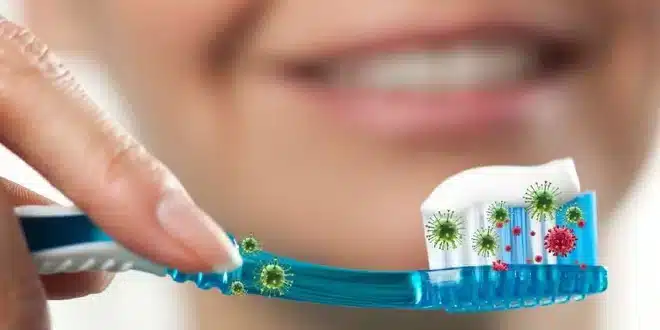A recent study led by microbiologists from Northwestern University has revealed that a highly diverse collection of viruses is present on everyday items like showerheads and toothbrushes. However, these viruses do not infect humans but instead target bacteria.
The research focused on bacteriophages, or “phages,” which are viruses that infect and reproduce within bacteria.
The findings, published in the journal *Frontiers in Microbiomes* under the title “Phage communities in household-related biofilms correlate with bacterial hosts but do not associate with other environmental factors,” indicate that these viruses are abundant in our homes.
Erica M. Hartmann of Northwestern explained, “The number of viruses we discovered is astounding. We came across numerous viruses that we know very little about, and many others that have never been documented before. It’s remarkable how much unexplored biodiversity surrounds us—even in our own homes.”
The study began with Hartmann’s curiosity regarding the potential microbial aerosol particles generated by flushing a toilet.
“We wanted to know which microbes live in our homes. If you think about indoor environments, surfaces like tables and walls aren’t ideal for microbes, but they thrive in places with water—like showerheads and toothbrushes,” Hartmann said.
The study uncovered over 600 different viruses, with no two samples being identical.
“We found almost no overlap in virus types between showerheads and toothbrushes,” Hartmann noted. “There was also very little overlap between any two samples overall. Each showerhead and toothbrush seemed like its own unique ecosystem, highlighting the incredible diversity of viruses.”
Hartmann suggested that these mycobacteriophages might have practical uses, such as helping clean pathogens from plumbing systems. “We want to explore all the potential functions these viruses have and see how we can put them to good use,” she added.
Do These Microbes Pose a Health Risk?
Hartmann assured that these microbes pose no threat to human health. They are unlikely to make people sick.
She recommended simple maintenance steps like replacing toothbrush heads regularly, soaking showerheads in vinegar to remove calcium buildup, or washing them with soap and water.
“Microbes are everywhere, and most of them are harmless. The more we use disinfectants, the higher the risk of developing resistance, making them harder to manage. We should learn to coexist with them,” Hartmann concluded.


